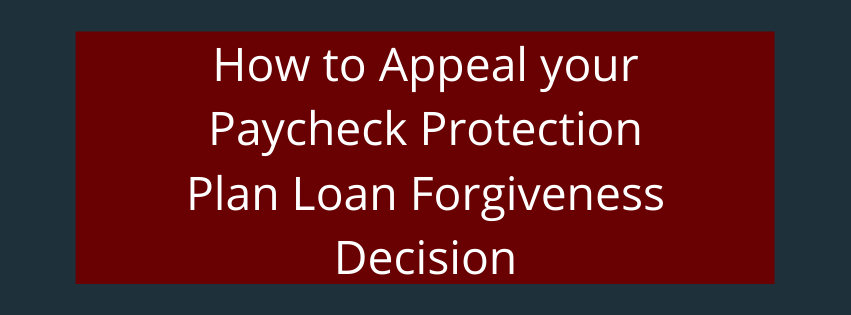If you’re a small business owner and you had your Paycheck Protection Plan loan forgiveness rejected, the latest update from the Small Business Administration (SBA) may be of some help. According to Accounting Today, The SBA’s Office of Hearing and Appeals has been appointed to deal with PPP loan forgiveness denials. They have recently released the interim final rule on how to appeal this decision.
Background on the Paycheck Protection Program
The Paycheck Protection Program (PPP) was included as part of the CARES Act, passed in March, which aimed to help small business owners cope with lost revenue due to economic closures resulting from the coronavirus crisis. The PPP was designed to allow lenders to provide forgivable loans to entrepreneurs and was widely hailed as a lifeline for those struggling to maintain business amidst the pandemic. Unfortunately, as we detailed in our article, lenders have been struggling with the disorganized implementation of the program. One of the most notable issues was the lack of information regarding what documentation needed to be kept in order to qualify for forgiveness. Now, small business owners are facing rejection of their applications to pardon these loans as part of the program.
How to Appeal PPP Loan Forgiveness Rejection
The process to appeal is a formal, legal one, meaning small business owners should be represented by an attorney, not just financial counsel such as a CPA. If you are seeking to overturn the decision regarding your Paycheck Protection Program loan forgiveness, you will need to submit the following:
- A copy of the loan forgiveness decision that you’re appealing
- A statement detailing why you believe an incorrect decision was made
- A declaration of the relief you’re seeking
- Signed copies of payroll taxes filed with the IRS and your state
- Your federal tax returns and schedules
- A document containing your name, address, phone number, and the signature of your attorney
Accounting Today estimates that the final documentation needed in order to appeal should total about 20 pages, not including any attachments. The interim final rule was made effective immediately by the SBA. They are still accepting comments on the rule for the time being.
The SBA also released this document, which answers frequently asked questions about Paycheck Protection Program loans, including how they interact with the Economic Injury Disaster Loans. These EIDL loans are not forgivable and are distributed directly from the SBA to small business owners who qualify. In some cases, the SBA has to reduce PPP loan forgiveness amounts by the amount of the EIDL advance.
If, after appealing your loan forgiveness decision with the SBA, you still owe money on your PPP loans on August 11th due to not qualifying or having a partial reduction because of an EIDL advance, you must repay the balance. According to the SBA, “The lender must continue to service the loan. The borrower must repay the remaining loan balance by the maturity date of the PPP loan (either two or five years.)”
